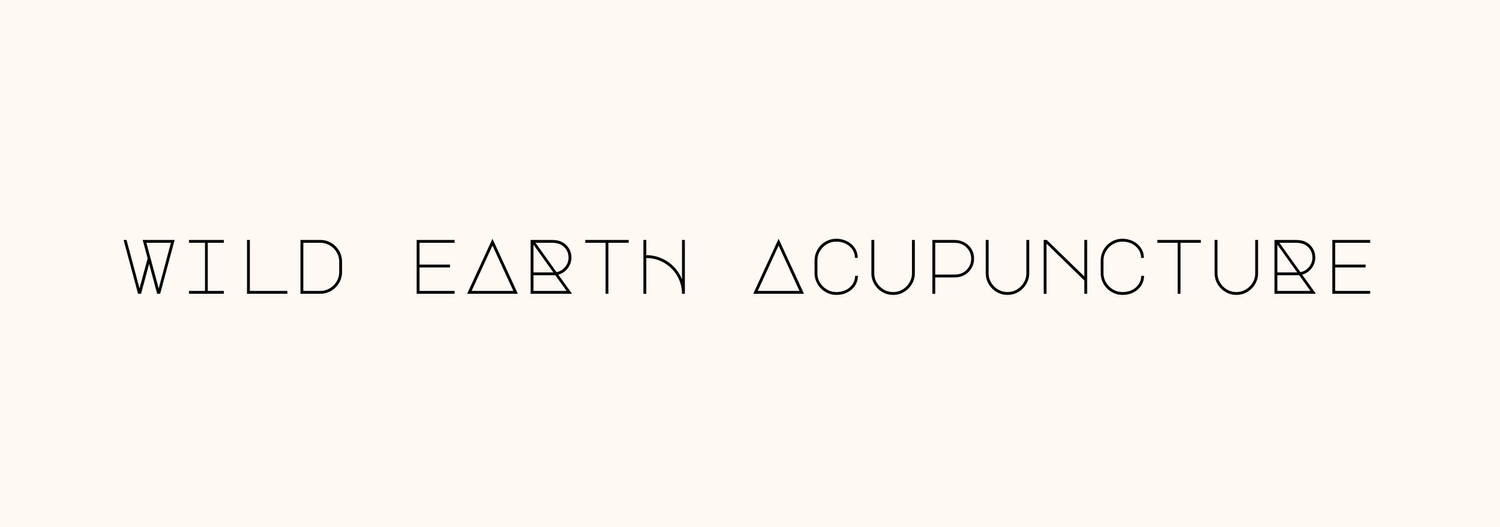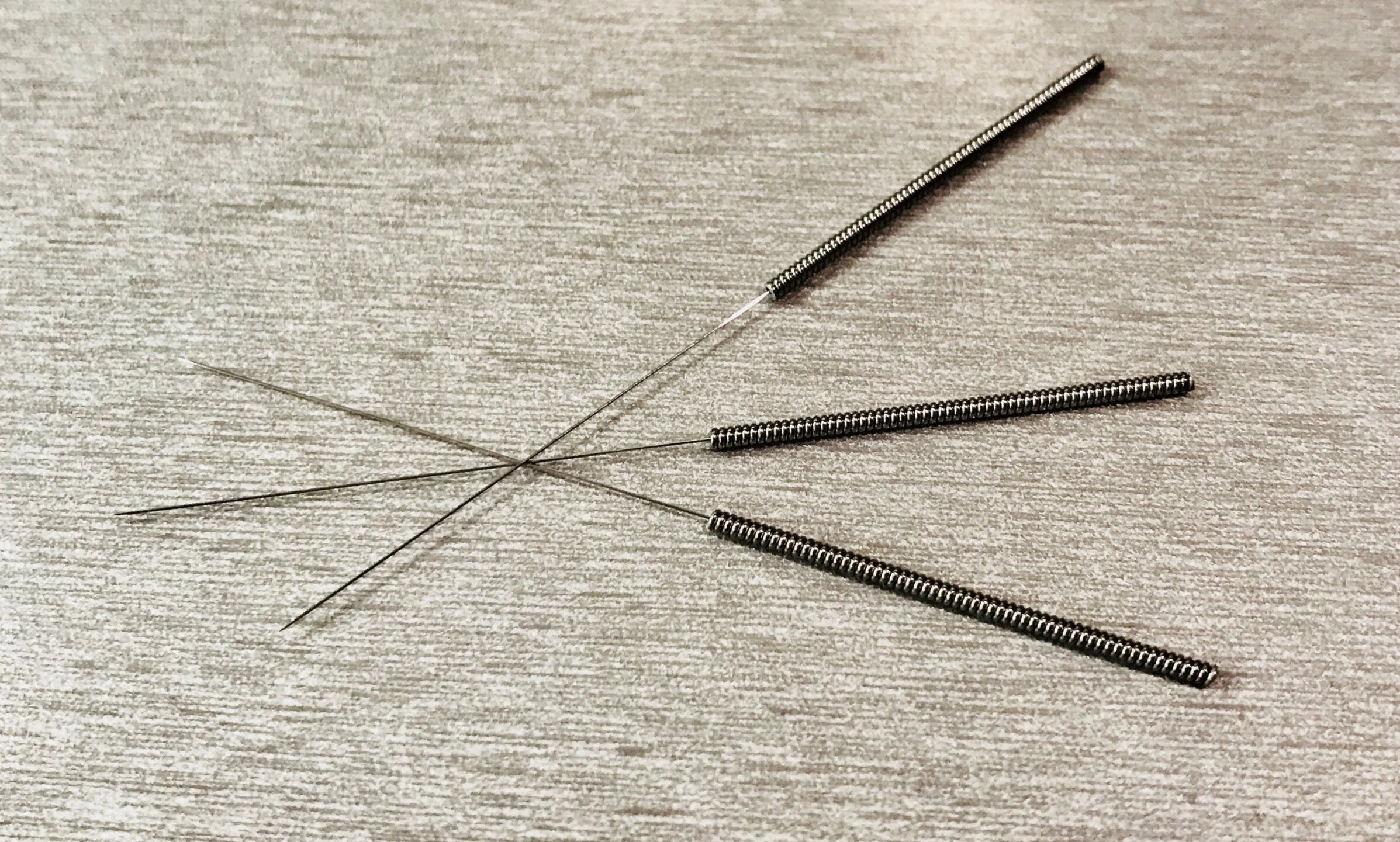How does Acupuncture work?
Around forty of these needles can fit into one hypodermic needle!
Acupuncture, a Traditional Chinese Medicine practice, involves inserting thin needles into specific acupoints on the body. This article explores the mechanics of how acupuncture works, shedding light on its effectiveness in promoting balance, relieving ailments, and enhancing overall health.
Originating from ancient Chinese traditions, acupuncture is an artful technique that involves the strategic insertion of thin needles into specific points on the body. From influencing energy flow to unlocking the body's innate healing mechanisms, this ancient medicine has withstood the test of time, dating back over 2000 years ago when it became an organized medical system. Yet it is thought that this medical practice stems from ideas over 4000-5000 years old.
Its successes have been clinically proven, tested, researched, and documented thousands of times over. But we are still unable to pinpoint exactly HOW it works. In the scientific community, this lack of explanation can be quite daunting. But the results and patient testimonials speak for themselves. There are a few major hypotheses that break down the mechanism of action that makes Acupuncture so effective.
From a Chinese Medicine perspective, Acupuncture which is only one facet of Chinese medicine, is based upon a system of thought that there is an energetic force known as Qi ("Chee") that flows through the body in pathways or meridians, and when out of balance leads to states of disease or injury. The theory behind this medicine explains the physiology and pathology of the human body, uses specific principles of diagnosis, and views prevention and treatment of disease from a holistic standpoint while noticing the relationship of change and development between the human body and the natural environment. Utilizing small needles in conjunction with energetic points located upon these meridians, Acupuncture is believed to work with the Qi to bring more balance and health to the body.
From a Western science perspective, one major hypothesis is that the insertion of these tiny needles can produce a release of endorphins. Endorphins are neurochemicals that help to inhibit pain and produce feelings of pleasure or euphoria. A recent study shows that Acupuncture works with the nerve fibers of the body to send information along the long nerve tracts. "The insertion of the acupuncture needle disrupts this circuit and numbs our pain sensitivity.” The National Institute for Health believes that acupuncture produces many biological responses within the central nervous system causing changes in blood flow, heart rate, hormone regulation, and release of neuropeptides.
Another is that the acupuncture needles work with the fascial tissue of the body, a complex network of connective tissue that surrounds all muscles and organs. It connects and influences every muscle, organ, nerve, and blood vessel. This matrix of support that the fascia makes up within the body is an important means of communication linking every cell. If the needles can interact with the fascia then they are also able to communicate with the body’s physiological functions. The acupuncture channels are also oddly similar to the visual facial planes.
Another view of how acupuncture works is that the insertion of these tiny needles causes micro-injuries to the body creating an immune response. The immune system then responds by sending inflammatory proteins, white blood cells, and other chemicals to this area. These tiny needles then can produce a large response from the immune system in hopes of dealing with the bigger issues at hand.
I believe that it is a combination of all of the above theories, and probably even a little bit more. This complex and intricate system of medicine is almost too good to be true. The results are astonishing and people are living happier and healthier lives. Whatever resonates with you, the most important research is the kind you do yourself. So make yourself an appointment and find out today!
Benefits of Acupuncture
Acupuncture offers many benefits for both physical and mental well-being. By inserting these sterile, single-use needles into specific points on the body, acupuncture has been studied to promote relaxation, decrease pain, improve digestion and sleep, and alleviate stress.
Many individuals seek out acupuncture to find relief from pain, as acupuncture is known to reduce inflammation and stimulate the release of natural painkillers.
It also contributes to improved sleep quality and enhanced mood by balancing the body's energy flow.
Acupuncture has also been associated with improved immune function, making it a holistic approach to overall health and vitality.
Anxiety/Stress Reduction
Pain Management
Infertility
Digestive issues
Headaches/migraines
Allergies
Hypertension
Breach position of the fetus
Arthritis
Improve sequela of stroke
and much more!
Sources
https://www.actcm.edu/news/new-scientific-breakthrough-proves-why-acupuncture-works/
https://www.medicinenet.com/acupuncture/article.htm#how_does_acupuncture_work
This ancient medicine holds many secrets inside its healing modalities.
Keep poking around my articles to learn more!


